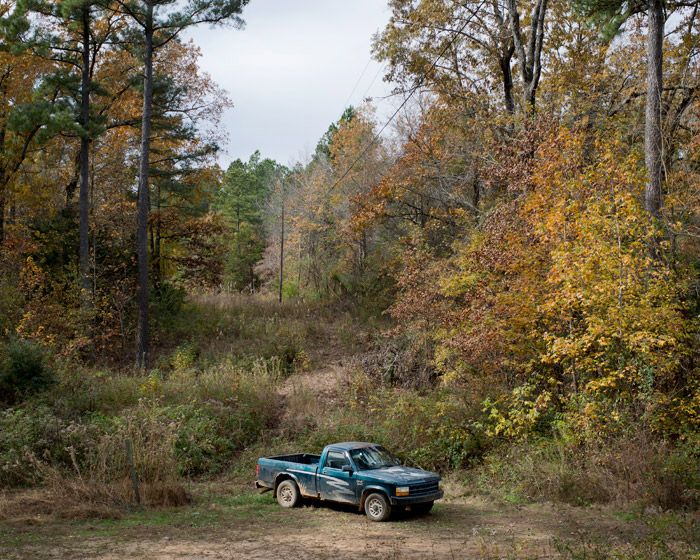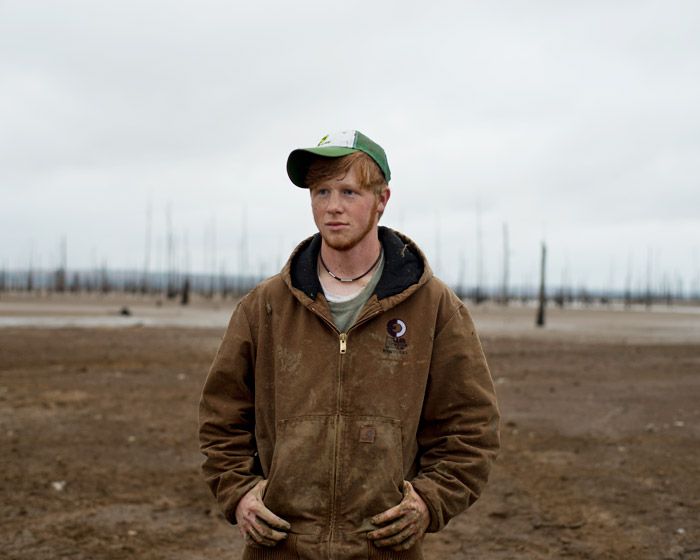blog
Interview with photographer Houston Cofield
F-Stop Magazine: How did you first become involved in photography and what led to you working in this medium as an artist?
Houston Cofield: I first picked up a camera in high school when I chose to be on the newspaper staff. My parents wanted me to do an “extra curricular” activity since I was bad at sports. Initially I used my first period newspaper class as an extra study hall until my teacher forced me to take 20 images a day with a Canon Rebel. After I graduated I bought my first digital camera which was a Nikon D60. I shot with it all the time and looked at photographers like William Eggleston, Sally Mann and Walker Evans for inspiration.
During college I began to take up photography seriously. A professor of mine, Brooke White, at the University of Mississippi had a huge influence on my work. She encouraged me to apply to graduate school to further my growth as an emerging photographer. If it weren’t for Brooke pushing me along to get my MFA I’m not sure I would have stuck with photography.
As far as choosing the camera as my medium I think it was really the only artistic medium that ever made sense for me. My family has a long lineage of photographers dating back to my great great grandfather. Growing up I was filled with stories of my grandfather at work in his studio photographing portraits of William Faulkner in Oxford, MS. I couldn’t help but be curious about the medium, and when I picked up the Canon Rebel in high school I began to see everything in a rectangular format.
F-Stop: The “Documentary” issue of F-Stop includes your project “Common Ground” can you tell us about this project? What led to you creating this project?
HC: As I mentioned before, I think a large reason I’m drawn to photograph in North Mississippi is because of my family’s history there. My grandfather and great grandfather devoted their lives to photographing William Faulkner from an early age. They also photographed on the same land I am wandering through now. So my idea with “Common Ground” is to merge these histories to make my own sort of historical fiction with ideas drawn from this region.
F-Stop: This project combines a sort of truth and fiction into something that is then presented as “documentary”. Can you talk a bit about what documentary is for you and how it relates or doesn’t relate to an idea of “truth”?
HC: I imagine my approach to this region like that of an author in a sense, in this case a historical fiction author. When I am making photographs I like to be in the physical space where I want my “story” to be written or visualized. So it is important to me that all of these sitters (except for one which I will not give away) actually live in the region in which I’m working. I’m attempting to present my photographs as a sort of historical fiction, not a strict sociology of a place. I often find myself employing devices of fiction by focusing on specific aspects of the region and heightening the things I find are pertinent to what I’m trying to describe.
So “truth” does play a role in that I feel as if I am going to use this land as my sketch board for fiction then I must be in the land itself working directly with what I find so fascinating.
F-Stop: Can you discuss your process for making these images? How do you choose locations, or subject matter?
This process for image making is actually very different for me. A lot of my prior work was shot with a 4×5 camera so the image making process is obviously a much slower pace. “Common Ground” was all shot digitally. This faster tempo was something I’m hesitant to do especially using sitters because I enjoy being able to talk with the person I am photographing as I set up my camera. Surprisingly enough I was still able to have wonderful interactions with my subjects without being distracted by the set up of the 4×5.
This specific location is particularly intriguing to me because of a few short stories Faulkner wrote about this region. The stories are filled with myth and unforgettable characters. I set out to navigate the county roads surrounding this area in an attempt to investigate the mythical quality Faulkner so successfully described about this land and its inhabitants. The sitters I photographed were strangers I met as I travelled around the perimeter of Sardis Lake.
As I photographed I noticed a reoccurring brown color palette which became something I was interested in pushing. The different browns in the area seemed to cover everything including the people I photographed. I became really interested in the interaction or closeness the subjects in my photos had with the land. It was usually tangibly evident on their hands or clothes and in turn their own marks could be found in the landscape itself in the form of tire tracks, digging, etc…
F-Stop: What do you hope people see or feel or perhaps learn when they look at these photographs?
I guess the reaction I’d like to get from people is one of empathy or understanding. For me, these images speak to a state of being of a place that is virtually untouched by the urban landscape. Personally I really appreciate this way of life, and I hope the viewer is able to somehow make that connection as well.
F-Stop: Do you have a favorite image in this series? If so, which one and why is it the image that speaks to you most?
There are many images I like in this series, but the one of Mac (the boy in the red jump suit) is the one I keep coming back to. It seems to be the image I was looking for each trip I took down to Sardis, and I ended up taking this one the day before I was returning to Chicago.
A lot of the joy I derive from making images is the interactions that take place when I’m working. I came across Mac and a few of his friends riding 4-wheelers across the Sardis mud flats. I walked out there with my camera just as one of them got stuck in about five feet of mud. They had nothing else to do, but wait on a friend of theirs to pull them out so they let me start taking photos. We laughed about how mad Mac’s dad was going to be when he found out about the 4-wheeler, talked about people we knew and they enjoyed letting me take photos of them in the middle of a drained lake.
The image is an image and I like it, but the process is something I value much more. The process is something I hope comes out of the image and speaks to the viewer.
F-Stop: What is the intended “end” or “purpose” for the project? (i.e, book, multi media piece, etc)
I would love for this project to come to form in a book. That is my next big task is to collect historical and fictional documents, artifacts and possibly imagery (and a lot of cash). I think a book makes the most sense for all of those pieces to come together as one.
F-Stop: What are you working on now?
Right now I’m about to graduate with my MFA so I’m currently in the middle of getting ready for my thesis show in Chicago. The show opens March 11th-15th so I’ve got my work cut out for me.
F-Stop: What photographers or other artists inspire you?
Gosh, there’s too many. Maybe I’ll just name some of the big ones:
William Eggleston
Joel Sternfeld
Sally Mann
Joel Sternfeld
William Christenberry
Bryan Schutmaat
Walker Evans
F-Stop: What is the best career advice you have ever received?
As of recently Bryan Schutmaat has become a good friend/mentor of mine and although he doesn’t know it, he was the first photographer I came across that had a significant influence on me. Bryan said this simple phrase in response to a final question asked of him during an interview with Dirty Laundry magazine regarding his advice to young photographers:
“You’re not special. Work hard.”
Although his words were not given to me directly as advice they’re very meaningful and challenging which I think is why it has stuck with me.
For more of Houston Cofield’s work: cargocollective.com/houstoncofield
Location: Online Type: Featured Photographer, Interview
Events by Location
Post Categories
Tags
- Abstract
- Alternative process
- Architecture
- Artist Talk
- artistic residency
- Biennial
- Black and White
- Book Fair
- Car culture
- Charity
- Childhood
- Children
- Cities
- Collaboration
- Community
- Cyanotype
- Documentary
- Environment
- Event
- Exhibition
- Faith
- Family
- Fashion
- Festival
- Film Review
- Food
- Friendship
- FStop20th
- Gender
- Gun Culture
- Habitat
- Hom
- home
- journal
- Landscapes
- Lecture
- Love
- Masculinity
- Mental Health
- Migration
- Museums
- Music
- Nature
- Night
- nuclear
- p
- photographic residency
- Photomontage
- Plants
- Podcast
- Portraits
- Prairies
- Religion
- River
- Still Life
- Street Photography
- Tourism
- UFO
- Water
- Zine







Leave a Reply